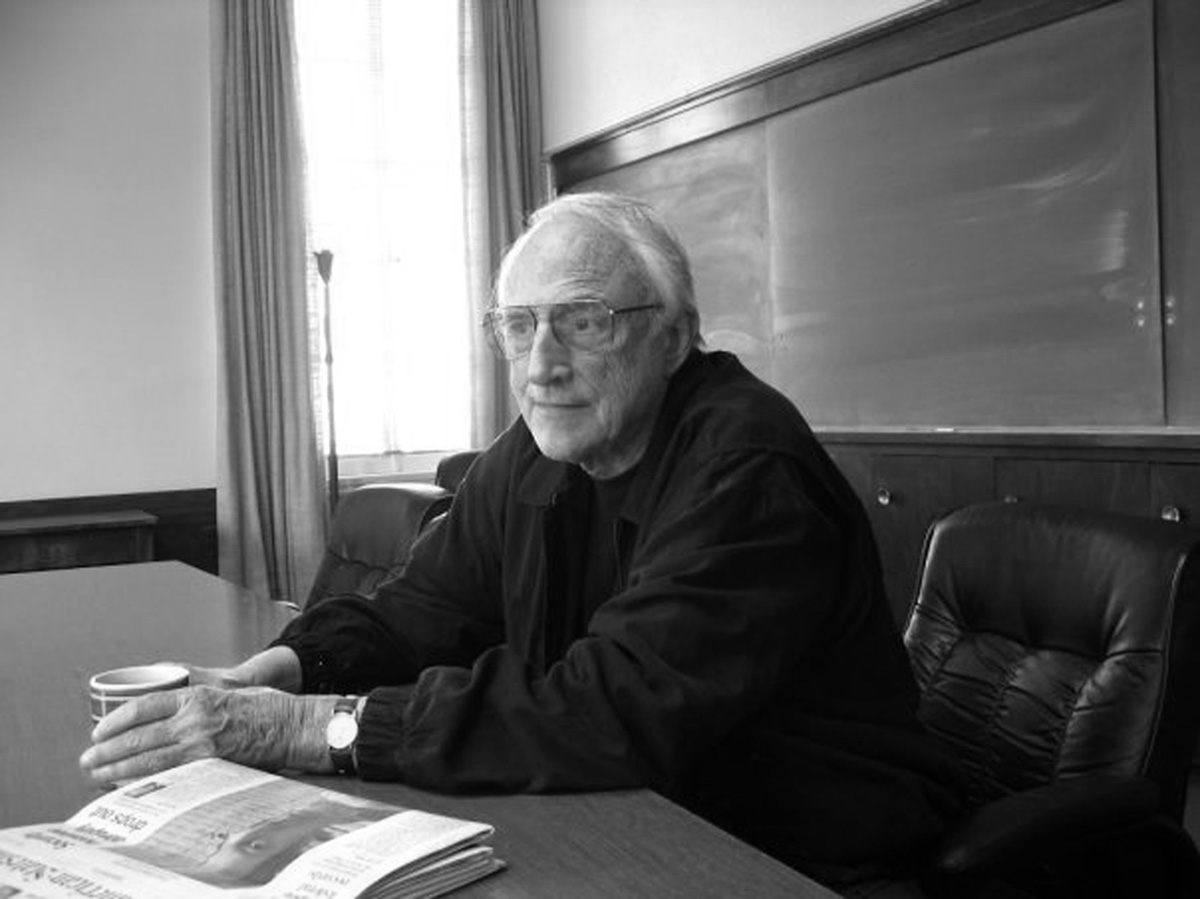How I Came to Work in Education
- 16 minutes read - 3196 wordsI’m nearing my first year anniversary at the Flatiron School and was thinking about the projects I’ve undertaken and what I’ve learned in the last year. While doing so, it struck me that I had never written about how I came into education from a career in corporate IT and full-stack programming. This is, after all, my second go at being a manager of a curriculum-producing team. When did doing this become my life’s work more than a career of pursuing code?
But moving into education wasn’t a new move as much as it was a return to a fork that I’d opted not to take as I graduated in 2000. In my last year at university, I’d faced the question of whether to pursue the academic life or a life working in business. I had been planning on an academic life, but I chose the other path at the last moment.
But now I realize that the fork I chose gave me lessons that I was able to add to the lessons that my most-fondly remembered teachers gave me. And now, in my role, I get to bear those golden fruits of the dollar and the philosopher to a new generation at a scale hitherto unimaginable.
Here is the story of my trajectory toward an educational path, how I came to delay traveling it, a recollection of some of the most important lessons I learned and people I met along the way, and how I hope to honor them and their teachings as I work in this new model of education.
European Seeds
In 1997 I had the great privilege and parental support to study abroad in Leiden, the Netherlands.

By Sixtus, CC BY-SA 3.0, Link
It was an amazing time: I met people from all over the world, I had my first taste of urbanite liberal / European living (and found it to my liking), and was graced to be given opportunities for travel within the continent.
There were personal changes as well: a chance to put the previous ramp-up to a future of my own determination into perspective, a chance to re-lens the first half of my college career, and a requirement to learn to face the loneliness and distance of being an expatriate.
I recall the early Fall there, working through jigsaw puzzles on my own, listening to Wilco’s “Being There” on repeat and trying to teach my soul to find its own footing and not cave to homesickness. It was the final deliberate cut to the apron-strings. I knew it when I left, when I marched down the jetway. Like the vampires of Anne Rice’s world, I had one, brief spurt of weeping (“it’s only mortal death”) and I knew that forever thereafter I would be someone different.
I arrived and attended orientation, bought a bicycle, had a bicycle stolen, did preparatory reading for my classes.
I wonder whether if in the age of WhatsApps and ubiquitous hi-speed wifi in pockets whether 20 year-olds flung to new corners of this Earth will be able to experience the place and be truly present in it. I was fast becoming someone else.
Beyond the formative change in myself, my studies there were formative as well. In particular, I must credit Dr. James McAllister. Dr. McAllister is pivotal for me because he showed me two important lessons:
- Rigor and quality should be the primary goal over production when it comes to intellectual undertakings
- That the world is full of “hidden” intellectual discourses for those who have learned to hear and see them
McAllister on Quality
I had a powerful conversation with Dr. McAllister ahead of Christmas break after my first semester in Leiden which forever changed my view on work and academia. I had finished my semester-capping paper with long hours of work at the library and many edits. I walked into his office hours and handed it to him.
“Is it good?” asked Dr. McAllister.
I’m sure I stammered something like “Oh yes, quite good.” I was operating under the American model of academic production: complete the tasks by this date to fulfill the measurements so that you get the grade so that the registrar can get the GPA report shipped: industrialized education on the par of industrial production. Swap Model-Ts for students on an assembly line.
He then said something like: “Well, if you had a few more weeks, would it be Top Quality?”
I had never heard of a teacher offering something like this. Back in Austin, I remembered TA’s announcing Blue Books of compositions being due after hours of wrist-cramped writing. I recall a particularly delusional, egomaniacal, martinet of a lecturer explaining how if homework weren’t in his mail slot by due time (and not one second later!) it wouldn’t be accepted. I’m ashamed for the state of higher education in America to now say that the thought crossed my mind that Dr. McAllister’s question was a trick of some sort!
I mulled his question over. In my heart of hearts, I suspected I could have made it phenomenal with another few weeks of time. It was, alas, only as the deadline grew inescapable that certain threads became clear that would have given the piece a solidness, rigor, and inevitability that would draw the reader fatally to my conclusion like Hellenes who strayed too close to Charybdis 1.
Whether I was silent, or stammered, I’m not sure.
“Well, take three weeks? Six weeks more? I usually give a month to anyone who asks.”
I was slated to board a train to Berlin that afternoon. I explained this and he said that it was no problem and he looked forward to reading the completed work in the new year. He encouraged me to enjoy my trip and hoped that it might offer inspiration for my next draft. As I recall, he glanced at a calendar and suggested somewhere in the fourth week of January or so.
Dr. McAllister cared about a beautifully-constructed piece that moved human knowledge forward more than anything else.
I went to Berlin and onward and let the ideas decompress. I came back to Leiden, finished the work with pride and, as I walked to his office, knew it was really good. He gave it a high grade and, subsequently, it went on to fare well at a contest back home. His simple commentary like “Very Good” meant the world to me. I had done well pursuing academic excellence. It was what I wanted for a career.
I also knew that if I were to educate, I wanted to share this experience with my students. The glory of writing as perfectly as you know how. The virtues of work, time, reflection, rework until the work is the best it can be. I suppose I had felt a touch of the spiritual enlightenment that comes from avid pursuit of craftsmanship. The TV show “Breaking Bad” did a wonderful vignette which shared this idea with “Jesse’s Box.”
To teach like this and give moments of enlightenment was what I wanted for my career. I wanted to teach people to make perfect boxes of ideas.
Second Semester: McAllister in the Garden
I wound up taking a second class with Dr. McAllister in the Spring. During one lesson we walked into Leiden’s beautiful Hortus Botanicus: Botanical Garden. As I recall it, we were led into the garden and we stood before a recreation of the original flowerbeds.

The Botanical Garden of the Academy at Leiden with walls and flowerbeds correctly drawn
Dr. McAllister pointed out that had we been educated in 17th century alchemy, we would look at those gardens and see a reason, a pattern, an organizational principle, a logos to the flower beds. If we knew that Mercury brought heat into the body, we would recognize that peppers and other herbs were in the Mercury bed. If we knew about the humours and the other principles of medical thought of the era, we would know what the healing properties of the plants in the other bed were.

Table of alchemical symbols
In short, the garden was talking, but in metaphors of earlier ideas. It had those earlier technologies woven into its very being but we were deaf to its language. As such, its wisdom was lost to us. While alchemy has been superseded by the chemistry, it has wisdom worth keeping and knowing. Without the tradition of exploration and re-importation into new, modern metaphors, society will lose the context and be required to re-discover things it already knew.
I left the field trip that day in a daze. Suddenly the whole world of semiotics, thought and meaning, signifier and signified, linguistics, generative grammar, prescriptivism versus descriptivism revealed themselves to me. I was lucky to be surrounded by many multilingual people and a few linguists. They smiled as they knew I had quaffed from the brew that their lives were to orient on. I was given Eco’s In the Name of the Rose and Foucault’s Pendulum. In them, I read works of fiction by a man who truly understood what I had experienced and had oriented his own life on it. Learning about meaning, encoding, systems, and relations was what I wanted to pursue with my life, I knew it. I wanted to fuse that study with the quality and rigor that Dr. McAllister had elicited.
I returned to Texas with a plan to enter the academic life upon graduation.
Back in Austin
I returned to the US and entered the heart of my major sequence studies. I programmed and did accounting as part of my BBA, but I remained oriented on the academic life and the pursuit of my BA. While the dot-com universe was heating up in the Bay Area and I was glad to use RedHat (Apollo) Linux, it wasn’t my focus. My focus was on writing well and learning from the teachers who, I now realize, changed my life.
Robert Solomon

Robert Solomon (d. 2007): who contextualized Kant in a way that I could admire and made me love Hegel. I remember the day he came into the classroom with a portable stereo and played Mozart’s for us: the tiny, calculated sounds of Eine Kleine Nachtmusik.
“This, is Kant,” said he.
And then, the passionate, stirring strings of, if I recall correctly, the opening of Beethoven’s Third Symphony.
“And that, is Hegel.”
A teacher that could move from music to jazz to anecdote to history was bound to leave an impression!
While revered for insights such as these, his existentialism class, and his masterful volumes of knowledge about Nietzsche, he was the first professor that put his vulnerability on display, recounting the day he traded pre-med for philosophy and how he had never looked back.
I still keep his In the Spirit of Hegel with me. It’s a beautiful, lucid book about an ugly, dense pamphlet gone haywire. The world lost so much when it lost him. Knowing him, sharing with him, and listening to him was certainly one of the most important experiences of my life.
TA (then) Tracy Lupher
Tracy Lupher TA’d my Symbolic Logic class before I went abroad. I was determined to get an “A” in that class and I did.
It was Tracy, who was pursuing masters degrees in Computer Science, Math, and Philosophy, who taught me some of the most vital debugging tools I ever learned.
- Q: What tools do you have? A: Modus ponens, modus tollens, DeMorgan’s theorem
- Q: What do you need? A: A freed element, a freed assertion
- Q: Do you know a tool that can get this first first premiss closer to what you need? Even if you can’t see the way to the end?
- Q: What do you wish you had. Can you get it? Can you build it?
These are the most essential strategies in programming as well. He was surely porting rules from logic into his programming and techniques for grinding at code back to his philosophy TA sessions. He stands in my recollection as a powerful example of the power of the multi-disciplinary life.
He also caught my subtle quoting of “Stay Frosty” from “Aliens” on one random afternoon when I was buried in some logic problem. Sharp and relevant!
TA (then) Jessica Berry
TA (then) Jessica Berry: Sharp and disciplined with Untitled Film Still photos from Cindy Sherman on her corkboard, she helped me become a careful reader by revealing the questions I should have been generating as I interacted with the material.

She also underlined her books with a postcard. It was a flicker back to Dr. McAllister: her practice was clean so that her work would be clean as well.
Edwin Allaire

Edwin Allaire (d. 2013): His Descartes through Kant class was one of the most important experiences of my life. In many ways, I’m sure he would have made a great programmer. So many of his strategies for reading philosophy were the strategies for organized thought, the precondition to good programming.
- On Good Writing: “When you read philosophy, when they make a statement, write it down in your notebook. Write the page number. Underline the statement. Then read on. Do they ever make good on this promise? If they do, they’re good. If they don’t, they’re sloppy. When you’re done, re-read your notebook. Find the part where you lost their thread. Was it you, or them? Ask questions and hold their feet to the fire until they admit they didn’t know what they were talking about or you see their point.”
- On Descartes: “Welcome to this class, today is the third meditation, or, where Descartes torpedoes the project. Maybe he wanted to go to a party.” By applying the previous technique, Allaire demonstrated a contradiction that ruined the foundation of this work. He crowed: “It’s all over. Why do we keep reading after that point? It’s ruined!
- On Readers Interacting with the Author: “Leibniz you slippery son of a bitch, answer me!”
- On Conscision: “Berkeley, what do you mean ’needlessly prolix’? ‘Prolix’ means needlessly using too many words! You were ‘prolix’ in your misuse of ‘prolix!’
These individuals were so wise and influential. I could only dream to have such an effect. I began to prepare for the GRE 2 so that I could enter their ranks. A life where I could practice the intellectual craftsmanship seemed to be the best life possible: speaking correctly, paying attention, challenging, laughing, sharing, growing around a deep commitment to quality and craftsmanship.
And then life did something unexpected.
The Call of Pluto
One night I was studying for the GRE at the college of business when I read an email from a company who was coming on-site. Drop a resume, get a personal pizza. I was hungry and had a printer nearby, so I availed myself. I didn’t stay long (I pleaded a need to continue studying), but the résumé started a series of events that lead to my interview and job offer with Cisco.
And thus the life that had seemed so sure and set in its path towards a small liberal arts college in New England where I could wear a tweed jacket with elbow pads suddenly found itself in competition with the spectacle of the dot-com run-up era in San Francisco Bay.
I was torn, but some help arrived. The aforementioned Dr. Allaire often lunched in the business administration cafeteria and I ran into him there. I asked whether he could help me with the dilemma. He listened patiently. Then Dr. Allaire’s voice, gravelly and heavy of New Jersey and New York said:
“Harms, philosophy’s been broken for 3,000 years. It’ll wait for you. Try out California and if you want to come back to this, you can.
I thanked him for his advice. After a night or two sleeping on it, I accepted the offer and began my career in technology.
The Twilight of the San Francisco Years
But through my years working in technology I was always focused on documentation, automating work away, realizing the logos of the various programming languages I learned and relishing that my grasp of those put me in a special communication with the creators.
However thirteen years later, these back-of-my-brain conversations were suddenly sought. First the now-defunct, DevBootcamp and now the Flatiron School gave me the platform to test, refine, and share all these lessons I’ve been accumulating.
The Now
I’ve looped back to the fork in the road Dr. Allaire helped me think through. While I’ve never gotten degrees in education, I wound up becoming an educator.
I know that the education in rigorous thinking that those teachers gifted me are the vaunted fruits of the liberal arts education. Daily I rarely think about the things I learned in my business degree, but every day I know that my eyes see through the liberal-arts lenses those teachers helped me grind.3 I know my words and paragraphs hang (betimes over-grandiloquently) on the skeletons they taught me to make.
And while they taught me in small, face-to-face scale in the kicking, mewling infancy of the internet era while I now semi-anonymously reach scores every day through the scale afforded by the internet and the Flatiron distribution channel, it’s their discipline of thought and character that looms as the Greek psyche in all that I create.
So here I am, an educator in a new model, now of some four years. But I’m an educator powered by my programming and technical background. The assets my team makes are meta-assets, built into coding frameworks that let us move more quickly. Information locked in “some other department’s” Airtable or JSON API doesn’t block me: I’m quick to use Python or Ruby or JavaScript to turn others’ data into the levers I need to move my team forward.
I think Dr. Allaire saw that occupations-enabled-by-tech were the way of the future. I flatter myself to think he saw in me a respect for the Old World philosophical traditions, a capability for the work of the future, and that I might blend those and bear them back to higher education. Maybe he thought I would renovate what the academic study of philosophy thought it was and could be. As it happened, the fusing happened, but I’m practicing it in a new type of institution, one where the wisdom of the philosopher’s craft is fused into the craft of the programmer.
Footnotes
- The sea-monster from The Odyssey
- The Graduate Records Exam: a standardized test for masters program admission
- A BBA is effectively a vocational degree. Its skills are largely useful for a narrow set of capabilities. This is part of the reason I bristle when bootcamps are disparaged “trade schools” or “vocational” training. That’s a horribly classist saying. What’s lurking there is, vocational education like a BBA / MBA /engineering is somehow different (How?) than vocational education. Being able to convince the public to internalize this classism is part of the reason university education has gotten so expensive. My grandfather learned the vocation of working in business at a business college (a vocational school) and did quite well and wasn’t saddled with house down-payments worth of student debt.